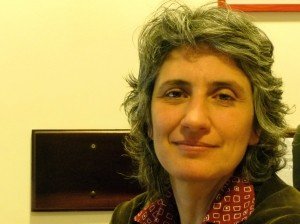Results of the early elections in Israel won’t be exact untill the soldiers' votes are counted but despite Tzipi Livni’s Kadima party leads the polls with 28 seats in the new parliament and right wing Likud follows with 27 seats; the true winner of this election is Avigdor Lieberman.
His far-rightist party Yisrael Beitenu won 13 seats and will be indispensable in a colition required to have the majority of the parliamentary votes necessary to form the government. During the campaign he strongly attacked the Palestinian minority in Israel and he said it is necessary to “transfer” them out of Israeli territory.
In Israel, about 1 million 400 thousand Arab Palestinians lives as Israeli citizens. They are represented by three parties that participated in the elections, getting together 10 percent of the vote -leftist Hadash acronym for Democratic Front for Peace and Equality got 3 percent, National Democratic Assembly Balad 3 percent and Ra’am, United Arab List 4 percent.
Bianet asked Kiffah Abed al-Alhim, speaker of Ra’am, the most popular among Arabic parties, what she thinks about the election results and how Palestinian minority's situation will change if Lieberman participates in the government.
“Yisrael Beitenu is the new Israeli Fascist Party”
“Like doctor Ahmed Tibi, member of our parliamentary group said several times, Lieberman’s party could be officially called the Israeli fascist party because it is a racist party and all his electoral campaign was all based on insulting the Arab minority in Israel. If he becomes part of the government, we'll be calling on other countries to boycott that government as the international community boycotted Austria's government because the fascist Hider's party was part of it.”
“Arab minority's participation in the election was very good”
“Before the elections, the Central Election Committee decided to forbid the participation of our list and another Arab list but we appeal the Supreme High Court and finally they allowed us to participate in the elections.”
“Palestinian parties got together 10 percent of the popular vote and Ra’am is the party who got the largest percentage. We are very satisfied because some groups in the Arab minority invited to boycott the elections but participation was very good, it was more then 50 percent. I think the Arab minority understood the importance of the elections especially because of Lieberman and right wing are becoming more and more popular and were trying to delegitimize Arab minority and our leadership. They are aware of the dangerous situation Arab citizens live in right now.”
“Arabs in Israel are discriminated against”
“The Arab minority in Israel has been discriminated in all fields of life, in the work place, in the access to social services; there is no field I can tell in which Arabs and Jews are equal except one, the right to vote. Our list for example has been dealing a lot with the issue of the representation of Arab citizens in the public sector. There are laws in Israel stating Arabic minority should be represented in the public sector like administration and governmental offices, but untill today, the percentage of Arab employees is less then 7 percent and we represent 20 percent of the population. So this is not an equal representation, it is not comparable with our percentage in the society.”
“Streets want Arab parties to form a coalition”
“The Arab minority members in Israel would like all the Arab parties to join in one coalition. We tried, as the largest Arab list in the Knesset, in this election and also in the previous one, to call other parties to join us but unfortunately they didn't agree. This is what the street wants, and I can tell you, our list is the only united one. Our list includes three parties: Arab Movement for Change, Islamic movement, and the Democratic Arab Party. While the other parties are speaking about unity we are doing it.”
“Media interest in Arab minority is a chance for us”
“There is something interesting in this elections: the internetional media were much interested in Arab minority's position. Many journalists from abroad or foreign correspondents working in Israel called us and interviewed our list members and many of them joined us during the election campaign. This was very important for us because it was a chance to tell people abroad about the Arab minority's condition in Israel.”(AT/EÜ)






